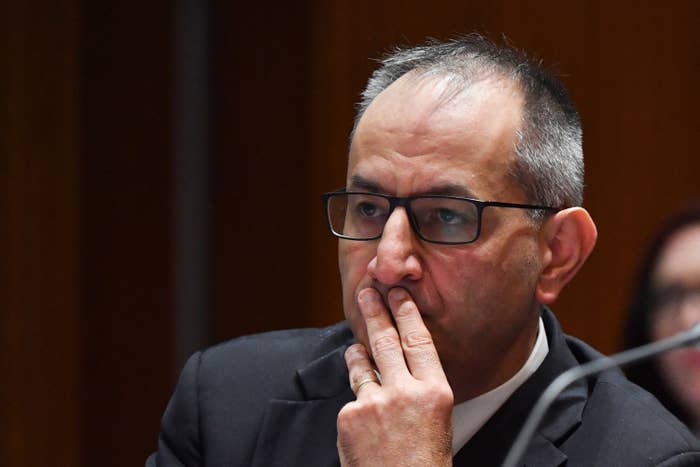
A second Indigenous man has been released from immigration detention in the wake of a High Court decision that found Indigenous people cannot be considered aliens in Australia.
And 23 more detainees are currently trying to prove to the Department of Home Affairs they are Indigenous, bureaucrats confirmed in an appearance before Senate Estimates on Monday afternoon.
The man was released last week, department secretary Michael Pezzullo said.
The four judges in the majority of the Love High Court case found that Indigenous people had such a special connection to Australia that they could not be considered "aliens" and so could not be deported.
The court adopted a three-part test to decide who was Aboriginal or Torres Strait Islander: a person must have biological descent from an Indigenous people, identify as Indigenous, and be recognised as Indigenous by their community.
Immediately after the decision, plaintiff Brendan Thoms was released from detention. The majority judges had agreed that he met the test. But the case's second plaintiff, Daniel Love, remained in detention as the judges were unable to agree on whether he met the three-part test.
The second man to be released "clearly met" the test, Pezzullo said.
It has been three weeks since the decision. The government is still getting a grip on what it means and how to respond, Pezzullo told senators, describing it as a "fairly complex judgment".
BuzzFeed News reported on Feb. 11 the case of Billy Hohoi, a man who was once named Australian Capital Territory’s Aboriginal & Torres Strait Islander Youth of the Year, but has spent nearly two years in immigration detention. BuzzFeed News understands Hohoi was not the man released last week.
General counsel Pip De Veau said the department was working "as quickly as possible" to establish whether the 23 people who claim to be Indigenous but remain in detention meet the test. In some cases, she said, they only had evidence of self-identification but not the other two aspects of the definition.
"Where people have self-identified, we are negotiating with them or their legal representatives to get the facts," De Veau said.
Pezzullo acknowledged that the department could not hold people it believed met the test.
"Indeed, if one of my officers forms a reasonable suspicion that a person [is Indigenous and therefore not an alien], then that officer would be duty bound to advise both me and the [Australian Border Force] commission that that said person should be released," he said.
The department is working with the attorney-general's department to interpret the decision and getting its own legal advice, Pezzullo said.
